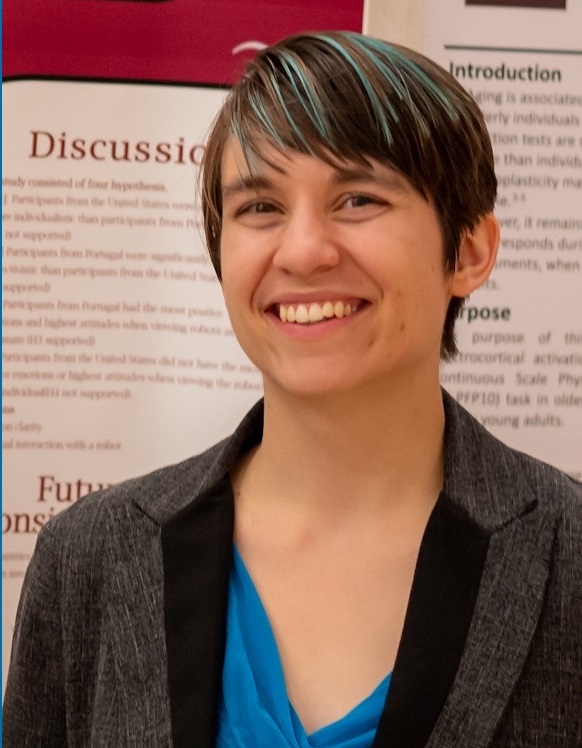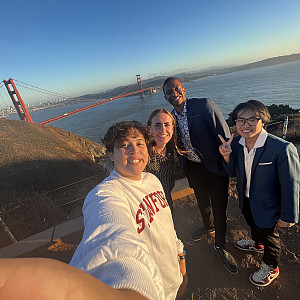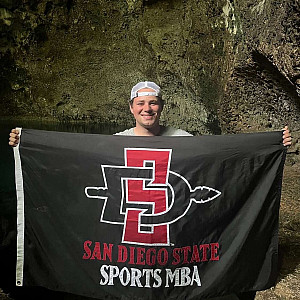Freeing You from Unrewarding Tasks
Can technology improve the quality of human lives in ways we haven’t yet considered? Learn with psychologist Marlene Fraune’13.
If you are running late, you might ask your robot to let a friend know. The stakes are low in relying on technology in this scenario. But if you are riding with friends in a semi-autonomous driving car, the stakes are considerably higher. Who is monitoring the car in case something goes wrong and lives are at risk?
These are the kinds of questions that preoccupy Marlene Fraune’13 as a researcher and assistant professor of psychology at New Mexico State University. “Technology has the potential to improve human lives, but only if people want it and trust it. That’s why I test and apply social psychology theory to understand human robot interaction (HRI).”
Marlene’s career path was sparked by a course on cyborgs taught by Beloit College cognitive scientist Robin Zebrowski’s course on cyborgs. Beforehand, she’s had no idea that studying the relationship between machines and humans could constitute a career.
Marlene studies groups, because people act and think differently when they are in groups when not alone. She engages in applied research to understand the influence of context, and pursues international collaborations to understand cultural influences on HRI.
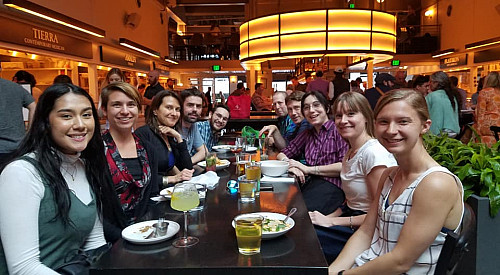
Thus, research with faculty at the Air Force Academy considers who is in charge when multiple people share a ride in a semi-autonomous driving car. Ultimately, the Air Force is interested in human-machine interaction when it comes to piloting planes. Yet another collaboration is with Japan’s Toyota Research Institute, where the question is how robots might improve the lives of the elderly.
Closer to home, she and a colleague in New Mexico State’s hospitality program are looking at customer interactions with a robot greeter in a campus cafe, as part of a large study coordinated by Carnegie Mellon University on technology’s impact on workers in the hospitality industry.
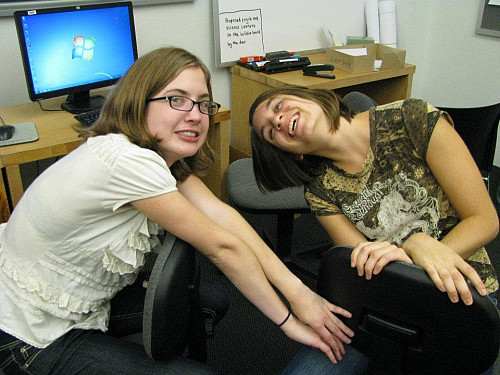
An initial off-campus research experience took place at the Indianapolis Zoo, following visitors to learn about their interactions with exhibits. Summer funding from Beloit College covered her expenses. The next summer she received a grant from the National Science Foundation to do research at Clemson University, where a brown bag discussion introduced her to research on affect in computers. That would lead to a senior capstone project on avatar/human interaction guided by professor Grosofsky. Alexis “gave students the flexibility and freedom to experiment with research design, read literature, and understand why the research is important.”
Marlene’s on-going interest in cross-cultural psychology was nurtured by participation in a study abroad program in Estonia and Morocco directed by Larry White. Marlene looked at obedience to casual versus formal authority.
“I was very shy coming into Beloit College. I remember trying to recruit participants for my study in Estonia by reading a script in a language I neither spoke nor understood. Then in Morocco, potential participants would nod and say, ‘yes, yes, yes’, and then, ‘but it won’t work.’ Eventually I figured out that it would be inappropriate for me to interview a male by myself, so I had to conduct mixed-group interviews instead. The program definitely forced me out of my comfort zone!”
Marlena’s current career and life are very much influenced by experiences at Beloit beyond the psychology program, however.
Writing instructor “Steve Wright was an amazing teacher. He taught us how to write a persuasive essay in 750 words or less, which requires clarity and concision. That was great practice for my work today.”
A class on ethics and moral reasoning with Brynn Welch, a visiting faculty member in philosophy, stands out as “fantastic.”

And so was ballroom dancing. “I thought it was probably a terrible idea when I signed up for the class in my first year at Beloit.” But not only did Marlene dance throughout her four years at Beloit, she has not stopped since. In fact, she recently participated in her first ballroom dancing competition.
Her lessons for others? “Step outside of your comfort zone. Ask yourself what you are interested in, as opposed to what your family thinks, and what you want to continue to explore.”
After all, Marlena had come to Beloit to study biology, but ended up adding a second major in psychology and a minor in creative writing, dancing, and conducting research, none of which, except the biology, she anticipated.
Also, envision your future. “You don’t have to have a solid plan, but you do need to think about where you might be headed. Once you know that, ask to be connected with alumni. When I realized I was interested in pursuing a PhD, the psych department steered me toward alumni who could help me through the graduate school application process. Those interactions were invaluable.”
